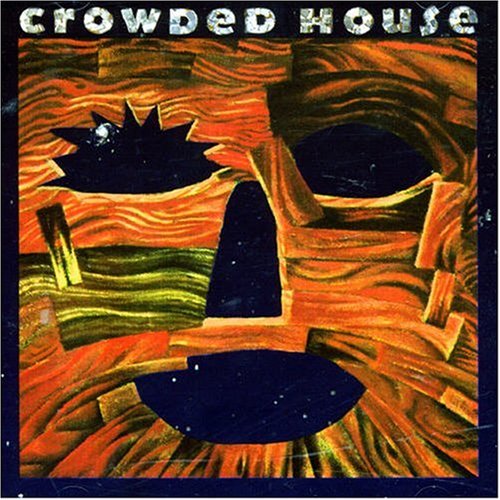The career arc of Crowded House through their initial phase was really rather odd. Over four albums they recorded some of the finest pop songs of the era, the first two being hits and successful in North America, while their profile in Europe was negligible, their last two were huge hits in Europe, but barely registered a blip across the pond.
Woodface was the album that broke Crowded House in Europe, thanks in no small part to the incessant jangling riff that “Weather With You” was built around. “Weather With You” is often the deal breaker for most people when discussing Crowded House. Some will find it’s lightness and ubiquity at the time to be intolerable, but there are equal numbers of people happy point to it as the high point of modern power pop.
What people oh so often forget is that power pop is a difficult style to really master, but at this point in their career, Crowded House could compete with the best of them. Their lyrics were mature and literate, they were fine musicians and in Neil Finn they had a skilful vocalist. Unlike many of their power pop contempories they also had the good sense not to smother their songs in big crunchy guitars or tooth rottingly sweet over-produced harmony vocals. Indeed, what makes Woodface sound so good is the sympathetic production, which managed to give each instrument space to be appreciated. It managed to convince pop fans that they were listening to a band of greater gravity than the average day time radio fodder, but the melodies and singalong choruses were still approachable and memorable.
At the heart of the majority of Crowded House songs though is a slightly dark heart, a sting in the tail, where a previously joyous love song is turned on its head by a thinly veiled bitter lyric. Yes their songs can be all smiles and optimism, but just beneath that is the knowledge that happiness is temporary thing. No one did this kind of thing better than Crowded House. From the yearning of “Fall At Your Feet”, to the final resigned smile of “How Will You Go” you get the feeling that Neil Finn was expecting to get dumped throughout the entire duration of the relationship.
One of the things that makes Woodface Crowded House’s best album is that on this occasion, Neil Finn had recruited his brother Tim into the band, primarily to boost the band’s sound a little, but also to create a formidable writing partnership. This combined with the material that Neil penned solo, gives Woodface one of the highest hit rates of any early 90s album. Special mention should also go to “Italian Plastic”, the only song on here not penned by the Finn brothers, drummer Paul Hester showing that he too could write a toe tappingly good pop song when the mood took him.
All these years later, it continues to shine as brightly as ever.













